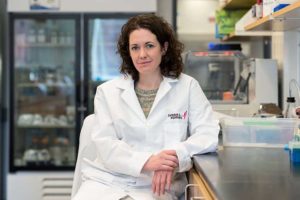MIC Specific Modules
About
 Students have the flexibility to choose from over 40, six-weeks, modular courses focused on a wide array of topics in biomedical sciences. In these higher-level courses, our expectation is that the students will apply the tools that they have learned in the core course to synthesize and integrate the most current knowledge in the field.
Students have the flexibility to choose from over 40, six-weeks, modular courses focused on a wide array of topics in biomedical sciences. In these higher-level courses, our expectation is that the students will apply the tools that they have learned in the core course to synthesize and integrate the most current knowledge in the field.
Courses
Key: Monday- (M), Tuesday- (T), Wednesday- (W), Thursday- (Th), Friday- (F)
S1 (Early Feb. – Mid March), S2 (Mid March – Early May), F1 (Early September-Mid October), F2 (Mid October-Early December)
Credits: 2
Instructor: Dudley
Time: 1:30-3pm T, Th – S1
Prerequisites:
BIMS 6000 (CCIB)
Description:
This course examines the molecular basis of cancer and how environmental and hereditary factors cooperate to elicit the transformed phenotype and promote cancer progression. It is team taught by both basic scientists and clinical faculty, providing students with an introduction to clinical presentation, progression, and outcomes; genetic/cellular/tissue drivers of oncogenesis and metastasis; and therapeutic challenges for the treatment of cancer.
Credits: 2
Instructor: Purow/Gioeli
Time: 10:30am-12pm T, Th – F2
Prerequisites
MICR 8040 and MICR 8044
Description
This course will cover contemporary topics relevant to the detection and treatment of solid tumors and hematopoietic cancers. These include, but are not limited to, clinical trials, metabolism and cancer, cancer stem cells, cancer biomarkers, systems and networks in cancer. Students will attend organ-based tumor boards, which expose the students to the team-based approach for individualizing treatments that is practiced in the UVA Cancer Center. Prerequisite: Fundamentals in Cancer Biology
Credits: 2
Instructor: Gioeli
Time: 1:30-3pm T, Th – S2
Prerequisites:
MICR 8040
Description:
This course is a follow-up to Fundamentals in Cancer Biology. It examines hormonal regulation and signal transduction pathways in breast cancer and leukemia/lymphoma. Clinical and basic science faculty again team up to provide students with a comprehensive view of clinical aspects (early detection, diagnosis, epidemiology, prognosis, treatment, and prevention) and experimental strategies that reveal basic mechanisms underlying these diseases.
Credits: 2
Instructor: Bender, Ewald
Time: 10:30am – 12pm M, W, F – S1
Prerequisites:
Previous Immunology class or permission of the instructor
Description:
This module will cover the different components of the adaptive and innate arms of the immune system with a focus on development and molecular pathways regulating these processes.
Credits: 2
Instructor: Bender, Ewald
Time: 10:30am – 12pm M, W, F – S2
Prerequisites:
MICR 8200: Building Blocks of the Immune System
Description:
This module will cover how the diverse components of the immune system are integrated and how this integration influences further maturation and differentiation of elements of the immune system under physiological and patho-physiological conditions. This will include responses to different types of pathogens.
Credits: 2
Instructor: Rutkowski
Time: 9am – 11am TH – Extends all semester F1 & F2
Prerequisites:
MICR 8200: Building Blocks of the Immune System and MICR 8202: Integration and Diversification of the Immune System or equivalent permission.
Description:
The module will cover in depth selected contemporary topics in molecular and cellular immunology. Sessions are discussion-based and facilitated by faculty. Students will learn how to critically evaluate primary literature and to clearly present scientific information.
Credits: 1
Instructor: Mann, Barb
Time: 3pm-4:30pm TH – S1 – not offered every year
Prerequisites:
MICR 8200: Building Blocks of the Immune System
Description:
The course will cover the science and policies governing the study of select agents, and emerging infectious diseases. Topics will include, but are not limited to pathogen characteristics, regulatory requirements, recognition and detection of intentional and natural outbreaks, emergency preparedness and interfaces with public health.
Credits: 2
Instructor: Kendall, Rekosh
Time: 1pm – 3pm M W F – S2
Prerequisites:
BIMS 6000 (CCIB)
Description:
This foundational module will cover fundamentals of the biology of bacteria and viruses. Bacteriology topics to be discussed include bacterial physiology, genetics, and gene regulation, and how these and other features impact drug discovery and pathogenesis. Virology topics to be discussed include virus structure and assembly, viral replication, viral genetic regulation, virus/immune interactions, and applications of viruses in 21st century.
Credits: 2
Instructor: Agaisse
Time: 1:30pm – 3:30pm M W – F1
Prerequisites:
Prerequisite: Core Course and MICR 8400: Molecular Principles of Bacteriology and Virology
Description:
The class provides a comprehensive study of pathogenic microbes and their unique and conserved mechanisms of virulence.
Credits: 2
Instructor: Derre
Time: 1:30pm – 3:30pm W – F2
Prerequisites:
Prerequisite: MICR 8401: Microbial Pathogenesis OR MICR 8410 Advanced Topics in Virology
Description:
This course will discuss the grant process including applications for federal and foundation grants, proposal writing and submissions, and grant reviews. A research proposal (based loosely on guidelines for NIH postdoctoral fellowship grant application) on a selected topic in Microbial Pathogenesis will be developed by each student (or student teams).
Credits: 2
Instructor: Cliffe, Anna
Time: 1:00pm – 2:30pm T – F1 & F2
Prerequisites:
Prerequisite: MICR 8400 or equivalent, or consent of the course organizers
Description:
This year’s focus will be the current topics on virus-host cell interactions.
This module will cover recent topics from papers published in the past 12 months. Sessions will be based on published primary literature and will consist of discussions facilitated by the faculty with student participation heavily encouraged. Students will learn how to critically evaluate the primary literature and to clearly present scientific information. Topics will be focused primarily on host detection and defense mechanisms, and how viruses overcome these mechanisms to promote replication.
Session will consist of two journal articles/session. Each student enrolled in the course will present. Students are also required to write a short summary of the papers and discussion, which will be due prior to the following class.
